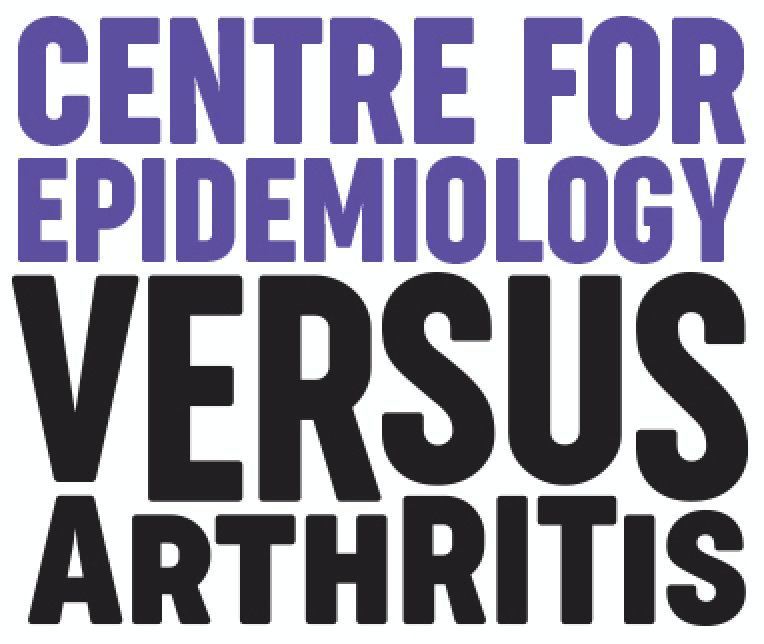Blog
Rebecca Barnard
2016-08-11 08:00
Roger's Story
I developed late-onset rheumatoid arthritis (RA) in my early sixties. I knew nothing about it beyond hearing tales of younger people in pain, having to suffer through the condition and the effects of treatments, knowing that their bodies and life-chances were being irreparably damaged.
I live in a two-story house in London with my wife and occasionally children and grandchildren. I am 74 years old and when, at 65, I compulsorily retired from the architectural practice I was in, I simply started again on my own, working from home. I've lately been telling myself to finally retire from business and University examining (maybe this year), but actually that's not really what I want to do until a risk develops of my becoming too far behind the curve or otherwise less than dependable. It's a soft landing that I'm looking for – for reasons of both 'life' and income.
I have always done a great deal of singing to a semi-professional standard, classical and church music mostly. It's a thrill and the adrenalin flows, so my RA has only interfered with that when I feel really ill. RA has never affected my voice or, so far as I can tell, my breathing, though I am very tired afterwards. In the future I am looking forward to studying and working at painting instead of just drawing, which I have done incessantly for my whole life. I want to continue to have life-chances and stay fully engaged with our church, where we are very happy.
RA came in an excruciating rush in the summer time when I was heavily engaged in DIY building and carpentry in an old wooden house in my wife's home town in Norway. I couldn't bear to touch, or be touched, which was very alarming, not least for my wife. I had both arms in slings and the local hospital thought I had got a bad dose of repetitive strain injury in both hands, arms and shoulders. Other things were going on with my health at the time too: I had lately broken a leg and ankle playing tennis, and had developed a post-operative deep vein thrombosis (DVT) in the broken leg. I had acquired lower leg ulcers related to the DVT and, which I did not then know about, I also had type 2 diabetes, atrial fibrillation and pneumonia. Clearly, I wasn't at all well and struggling. The state of my health began to be revealed at the Rapid Assessment Unit at St Mary's, in Paddington where they also discovered that I had had a heart attack without knowing it. These things were followed in the next couple of years by getting stents, a pacemaker and discovering I had kidney stones. Also, I was overweight, 'by about a 'fridge' said the cardiologist. That, and a life spent bending over a drawing board with bouts of vigorous activity such as skiing and badminton whilst being basically unfit had clearly taken its toll. I have no idea which, if any, of these other health issues may have triggered or made me prone to RA.
The process of bringing my RA under control was typically slow and painful, methodically working through combinations of increasingly expensive drugs and sometimes a heavy reliance on painkillers – which made me stupid - and steroids. I seldom use painkillers now, and only when I want to get to sleep, and I rarely use steroids which don't make enough difference to warrant putting up with mad dreams and being a bit hyped up.
Then, as now, I feel that climate affects my experience of RA. Very cold – below, say, 5 deg. C – and still and dry is usually very good. Clear winter nights in the mountains are a dream. Balmy and dry in England is also good. Cool or hot and humid is bad, and cool, humid, wet and windy is the worst. I sometimes feel like the bladderwrack seaweed that hung outside my grandfather's chicken run, that he swore could predict the weather for him (in Norfolk of course). I've always been puzzled that most 'conventional' doctors and, apparently, all rheumatologists have had no time for the possibility of a link with the weather, perhaps because there is nothing they can do about it. Experientially, then, Cloudy-pain is a no-brainer for me.
I can always feel my RA and occasionally I have a lot of difficulty with it. A few weeks ago a sudden change from warm and sunny to cold wet and windy coincided with RA pain sending me to bed for a week and a bit. Mostly though it's a single or group of fingers in one or both hands, a shoulder (or two), and elbows, wrists and neck and, less often, knees. Not always really symmetrical and sometimes in several remotely spaced locations at once. I have had several periods in hospital with actual or suspected septic arthritis – three times with knees swelling very fast and painfully in great spasms, and once with my right hip and groin. I often find it difficult to distinguish RA pain from the intermittent back pain and sciatica that I have had over many years – the drawing board, again - and sometimes required a visit to the pain clinic for injections and, eventually, before my RA appeared, needing highly successful surgery in my lower spine to decompress the nerves there.
Last year I suddenly developed the worst pain yet in my lower spine, I became unable to stand or move and doubly incontinent. This was the second time that this had happened, the first being around four years ago, which saw me transferred to the Queens Square Neurology hospital in the middle of the night because St Mary's were so uncertain as to what was going on. It seems that there are boundary circumstances (so to speak) where it is difficult to decide whether matters are rheumatological, neurological or musculoskeletal or a combination of all of them.
This time my GP thought it might have been cauda equina and, unable to have a scan because of my pacemaker and stents, the team at St Marys had to rely on X-rays, wisdom and intuition. They left me lying still in a motorised bed for 10 days with as much Oramorph as I needed. I ate very little, lost loads of weight, and came out very weak. I employed a 16-year-old work-experience brain-box to assist me – 'Roger, you're looking tired, go and sleep' - had some physiotherapy, and began to swim.
I am still eating less, and after a very gentle start I am now swimming 20 or 30 lengths and stretching in the pool on five days every week. I'm still very glad of my GP and the RA team at St Mary's, and the battery of pills and self-injections that have become part of my routine. Finally, I believe I have been the beneficiary of my faith and the prayers of others.
With thanks and best wishes to you and all my fellows dealing with the risk of pain.






